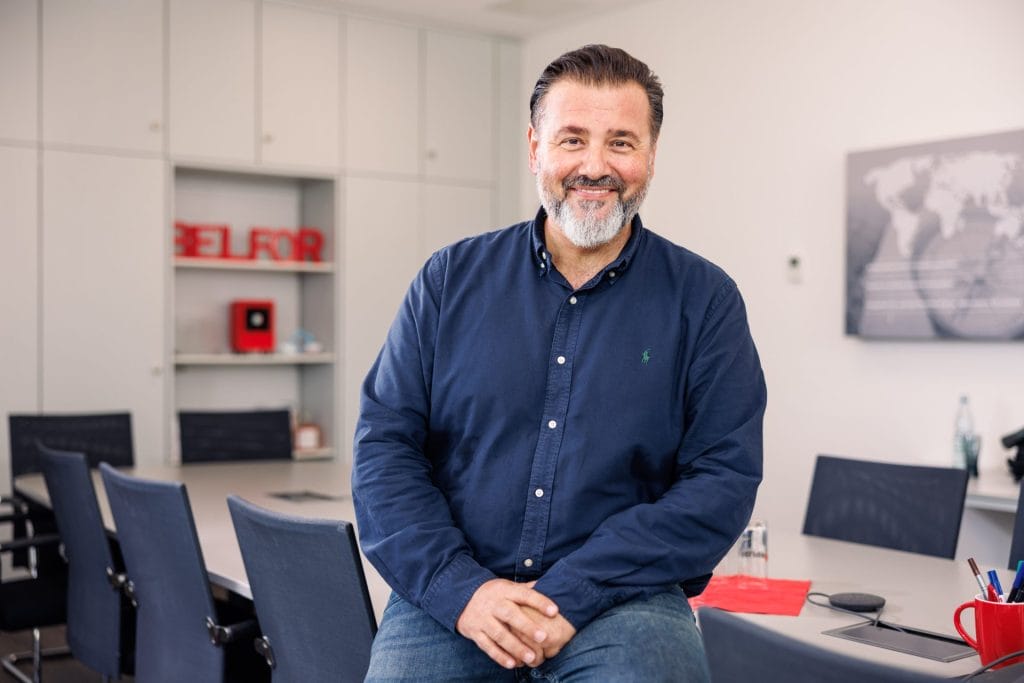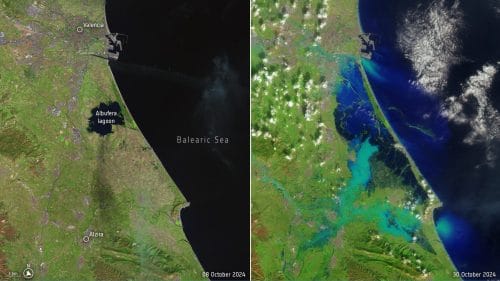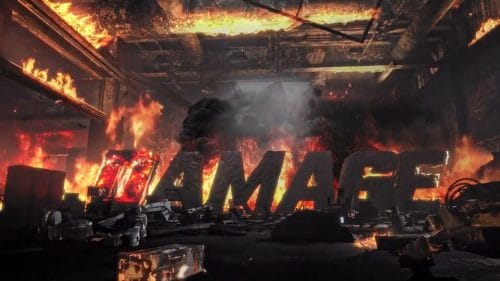“Every hour counts” when dealing withextreme events, says BELFOR CEO Kolak


The new reality of risk management: navigating supply chain
disruptions and climate change
April 2025: This interview with Elvir Kolak, CEO BELFOR Europe, was originally published on Commercial Risk Europe. For latest news about insurance risk management, consider a subscription https://www.commercialriskonline.com/subscribe/.
Risk managers are playing an increasingly important role in helping their organisations manage climate change risk and minimise business interruption, according to BELFOR’s European CEO Elvir Kolak, and last year had to deal with an “unprecedented” spate of extreme weather events across Europe and around the world.
The vastly experienced Kolak advises risk managers to focus on supply chain risk and work on a robust communication protocol to help minimise damage, while pointing out that his industry is working hard to ensure it can deliver for clients when they need them most, in the face of mounting nat cat damage.
“There has been a noticeable shift in the last five to ten years, with risk management increasingly driving how companies respond to events and plan for them. There is a much bigger Elvir Kolak, European CEO, Belfor focus on pre and post loss. Ten to 15 years ago there was very little interest in talking about preventive measures and action. Very few wanted to pay for that but now we see a lot more interest in those services and a focus on how to prevent the worst from happening in the first place. Risk management has been moving up in the chain,” he said.
“A lot of factories and buildings in general are investing in preventive measures – sprinkler systems, fire alarms and sensors etc – which is good and reduces losses,” he added.
Kolak stressed that it is becoming increasingly important for risk managers to factor in supply chain risk. “Critical areas in your supply chain need to be covered as well. And then there are suppliers of suppliers. Concentration of production can make this a real challenge, with one supplier affecting entre industries in some instances,” he said. “But even with supply chain risk there is much higher interest these days, in part a result of regulation. There is much more awareness and understanding that this risk is something companies need to think about,” he added.
Coordinating loss adjusting, restoration and claims services across the world is an important issue for risk managers, with some complaining that it can be a bit of lottery depending on country and insurer. Kolak believes most of the restoration services in Europe and the US are a high standard but agrees that things are less consistent elsewhere. He advised organisations to make sure there is a pre-agreed claims protocol and crisis plan in place, and he stressed the importance of knowing who will be involved in the moment of a damage. It is important to practice the plan, keep it up to date and ensure people are aware of the process. “And remember that speed is of the essence when an event hits. Every hour counts and resources to respond are limited,” said Kolak.
“I think a good and robust communication protocol is key. You need to make sure all parties are informed and kept in the loop because speed is everything. If it takes too long, corrosion damage, for example, can set in and make losses much worse. So I would start from there,” he said.
“I would advise looking into securing resources already before damages occur and involve all the necessary parties. Multinational companies can have hundreds of locations so you need to ensure that risk management communication spreads everywhere and that in the moment of need the plant managers, or someone else in a far-off location, remembers the plan – who to call and what to do,” he added.
This is increasingly important in the face of the growing impact of climate change and extreme weather events. BELFOR is on the front line and Kolak said last year was “unprecedented”.
“I have been in this industry for 30 years, and last year was extremely unusual because we had multiple major events across Europe – floods in Switzerland, Austria, Italy, Spain, Czechia and Poland. So at the moment we see increased activity in Europe and in Asia, multiple typhoons and other events. Last year was quite unprecedented and plays into the infrequency and size of losses,” he said.
On the other side of the Atlantic, Hurricane Helene made landfall in September followed by Hurricane Milton just two weeks later hitting much of the same area recovering from the previous storm. This caused real problems for companies, loss adjusters and other services providers.
“Two hurricanes in two weeks, with their double impact across the same territory, was unprecedented. Usually it takes a week or two to access the damage and get first responders on site, and within that period came the second hurricane. That is highly unusual and we were getting inundated with requests. In those instances we have to prioritise based on what is deemed more or less important,” said Kolak. “I have known several occasions in the last few years when service providers could not respond… it was simply too much.”
“Even if you have the resources, when you get into a catastrophe area there can be no hotels or restaurants, and you don’t have basic logistics such as power generation. If you send in 500 workers they have to have food and places to sleep. Those are some of the organisational challenges that need be tackled and we have faced,” he added.
Like every other industry, restoration companies have limited resources and must make commercial decisions. And of course no-one can know exactly where the next catastrophe will hit. So BELFOR attempts to ensure its staff are trained to the same standard around the world, allowing the company to move workers across borders to where they are most needed. But when there are multiple events, like last year, it is extremely difficult to ensure the company can respond to all its customers at crunch moments.
Part of BELFOR’s solution has been to create its RED ALERT service, which promises to prioritise these clients in times of need.
“Like every company, we have finite resources and need efficiencies, and damage and nat cats aren’t plannable. So by maintaining a base business, we need the ability to react to manage events. We can react to some extent and bring people together from different countries when a loss hit, but obviously we don’t have lots of people sitting around waiting for something to happen,” said Kolak.
“In the end, that’s why RED ALERT was the best option. We work out, through our own risk assessments, how many we can sign up to RED ALERT to be able to respond adequately and fulfill our promise. So that is what we try to think internationally and train people in the same way, so when we send them to other countries in response to an event, they can respond in the same way,” he explained.
Restoration is one of the industries that is clearly more in demand as the climate changes and the world suffers more extreme events. So you could say climate change is good for BELFOR’s business. But Kolak was quick to point out that he and his colleagues see themselves as another emergency service, such as medical support in times of a spreading disease. This means Kolak and his team must be technically strong and trained in soft skills.
“People often say I must be happy when a loss event happens, but I am not. I am as happy as a doctor who has a cancer patient. We see ourselves as helpers. We very frequently work with first responders and a lot of our people are very proud and happy to be able to contribute when something happens. There is obvious profit for the company but the emotional impact and helping others is big factor for us,” said Kolak.
“You have to approach every single event with the necessary soft touch and emotional intelligence to help clients understand what their pain point is and how you can help them in the fastest way. It can be very emotional when you see the damage. So our people have to have the technical understanding to minimise business interruption but also the softer skills too. We try to match the right project manager with each event, who understands how a certain industry works and can really help the client,” he concluded.



